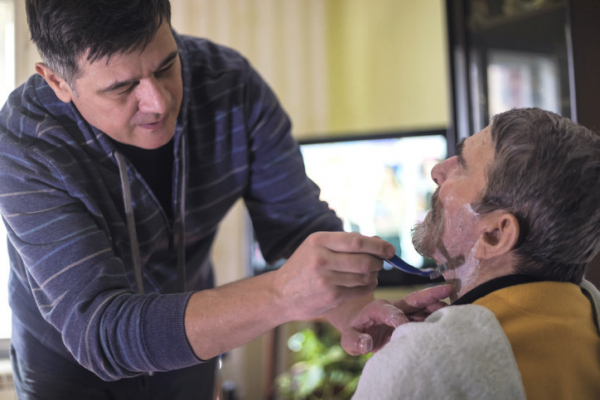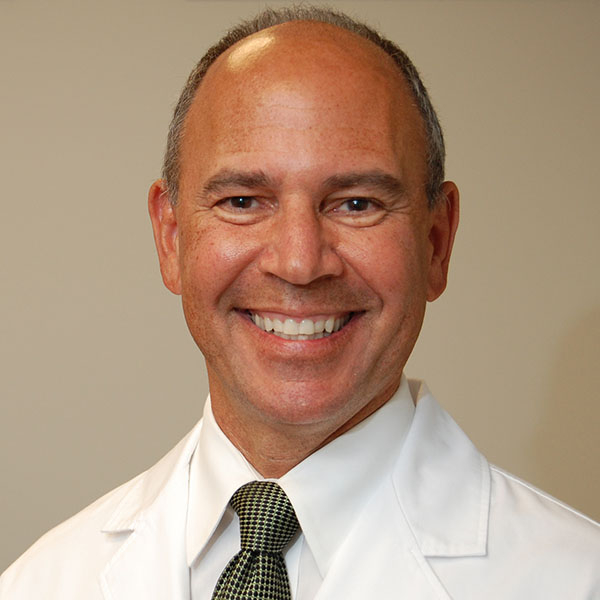
Most people want to age in place and live at home for as long as possible: according to an AARP survey, three-quarters of people 50 and older are hoping to do so.
But managing this successfully may mean hiring outside help, such as health aides who can assist you with daily activities that have become challenging. You might wonder when exactly it will make sense to seek that service. How will you know when it’s time? What can aides do for you? What are the costs and how can you make the most of their help?
Is it time to hire in-home help?
An easy way to know if it’s time for outside help is if your health takes a sudden turn for the worse — perhaps as the result of a fall that affects your mobility. But more often, the need for professional assistance at home isn’t so obvious. It develops gradually, as certain abilities — such as cooking, cleaning, or driving — become more difficult.
Even if you’re busy, happy, and able to do your own tasks and errands now, there may come a time when the balance shifts and daily activities become challenging.
“A lot of times these observations are made by family members or friends, and they start the discussion about getting help,” says Dr. Suzanne Salamon, associate chief of gerontology at Harvard-affiliated Beth Israel Deaconess Medical Center.
Start here: Ask yourself hard questions
You don’t have to wait until family and friends urge you to get outside help. Dr. Salamon recommends that you periodically assess your abilities and how well you’re managing on your own.
For example:
- Is it harder to get in and out of the bathtub because of muscle weakness or balance problems?
- Has driving become difficult because of vision changes, arthritis, or other reasons?
- Are you keeping up with your medication regimen, or are you sometimes not sure if you’ve taken pills?
- Are cooking and cleaning becoming much more of a chore than they used to be?
- Do you find grocery shopping or errands a little overwhelming?
- Do you need help bathing or getting dressed?
Be honest about the answers, and let your needs be your guide. “You might not need a home health aide yet. Maybe you only need a cleaning service to come in every other week,” Dr. Salamon says. “But if you need more assistance, it’s probably time to hire health aides.
What do health aides do?
Health aides are professional caregivers. There are two main types of aides.
- A certified nursing assistant (CNA): This is a trained, licensed professional who can provide hands-on physical care, such as helping you get up and down from a chair or bed, bathing, dressing, feeding, brushing teeth, and using the bathroom. A CNA can also perform homemaker services, such as cooking, light housework, transportation, shopping, overseeing medication routines, or sharing meaningful activities or conversation.
- A companion: This is a registered professional who can provide homemaker services but is not trained in body mechanics and cannot provide hands-on care.
The best place to find aides is through a private duty care agency, which vets and employs the aides, and takes care of their taxes and social security withholdings.
How can you find a reliable private duty care company, and what questions should you ask? Dr. Salamon suggests asking for recommendations from friends, your doctor, local senior services, or your local Area Agency on Aging.
How much does hiring health aides cost?
Private duty care is expensive. Costs average $25 to $30 per hour, typically with a three-to-four-hour minimum per week.
Those fees add up quickly. For example, if you need help two days per week for three hours per day, you’ll pay about $600 to $720 per month.
Costs are not typically covered by Medicare, but they are often covered by Veterans benefits. And they are sometimes covered fully or partially by long-term care insurance, state or local agencies on aging, or nonprofit groups.
What might hold you back from getting help you need?
Cost is a factor, of course. Even if it isn’t, you might not jump at the chance to hire home health aides. It could be that you feel you don’t need them yet, or that you’d be uncomfortable with strangers in your home.
But the sooner you can become accustomed to having professionals assist you with parts of your care as they become challenging, the better prepared you’ll be later, when you might require much more assistance. Trying services now can set you up with contacts — and caring people — you might need to lean on more often as time goes by.
How can you get over your reluctance? “Remember that you don’t have to commit to private duty care forever. Just try it for a few hours once a week. If it doesn’t go well, consider alternatives, such as eventually moving into assisted living,” Dr. Salamon says.
How far can a few hours of in-home help go?
What can an aide accomplish if you start out with just a few hours per week? Plenty.
You might want to set up a regular routine that includes doing laundry, changing bed linens, going on a walk with you, and making a large meal that can be frozen into smaller portions. Or you might want to focus on a theme for each once-a-week visit. For example, the aide can help you do errands one week, do some light house cleaning the next week, and help you cook the week after that.
“This is your opportunity to get the help you need, whether it’s with jobs around the house or basic activities of daily living,” Dr. Salamon says. “In the long run, it’s the kind of service that will keep you living on your own longer.”
About the Author

Heidi Godman,
Executive Editor, Harvard Health Letter
Heidi Godman is the executive editor of the Harvard Health Letter. Before coming to the Health Letter, she was an award-winning television news anchor and medical reporter for 25 years. Heidi was named a journalism fellow …
See Full Bio
View all posts by Heidi Godman
About the Reviewer

Howard E. LeWine, MD,
Chief Medical Editor, Harvard Health Publishing
Dr. Howard LeWine is a practicing internist at Brigham and Women’s Hospital in Boston, Chief Medical Editor at Harvard Health Publishing, and editor in chief of Harvard Men’s Health Watch.
See Full Bio
View all posts by Howard E. LeWine, MD
